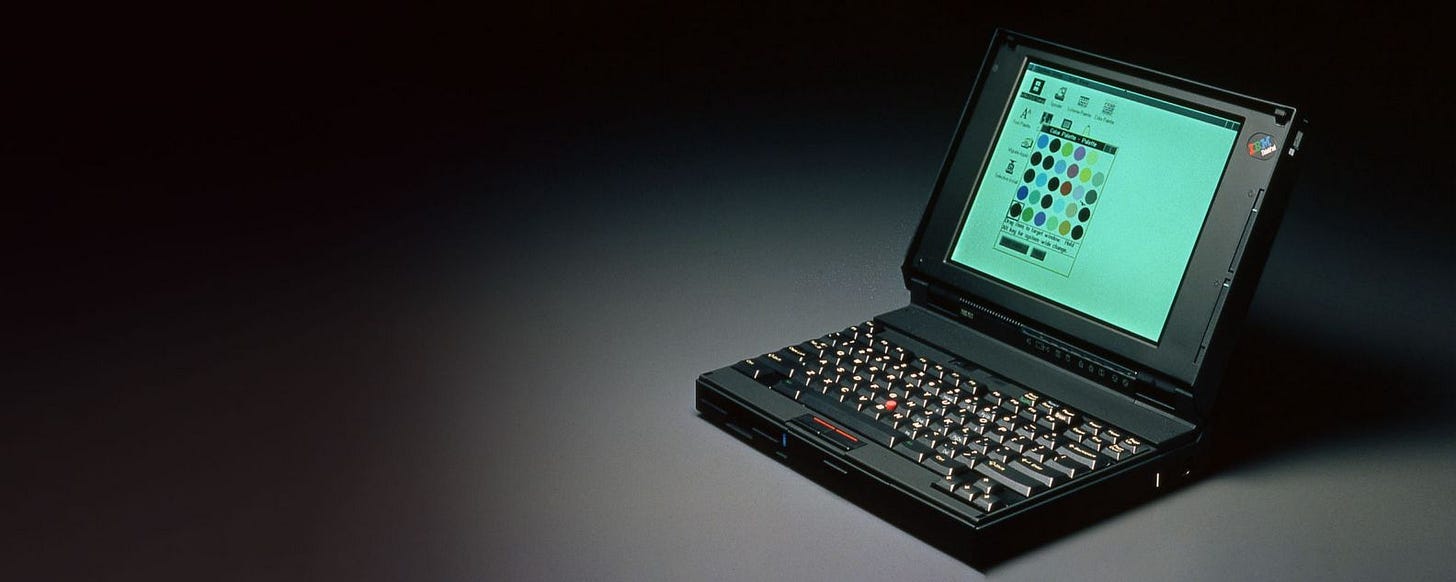Why ThinkPads Are the Best Alternative for a Laptop Experience: A Dive Into History and Open-Source Compatibility
When considering a reliable, versatile, and open-source-friendly laptop, the ThinkPad series consistently stands out as a top contender. Renowned for their durability, excellent keyboards, and compatibility with open-source software, ThinkPads have a rich history that speaks to their status as a beloved choice for developers, professionals, and open-source enthusiasts alike.
A Brief History of ThinkPads
The ThinkPad brand was born in 1992 under IBM, inspired by the company's strong reputation for innovation and quality. The name "ThinkPad" was derived from IBM's long-standing corporate slogan, “Think.” Designed by Richard Sapper and engineered by Yamato Labs in Japan, the first ThinkPad, the 700C, set the standard for what a laptop could achieve.
From the outset, the ThinkPad line distinguished itself with a minimalist black box design and groundbreaking features like the TrackPoint, a small red nub in the center of the keyboard for precise cursor movement. The series was marketed as a tool for professionals and power users who needed reliability and performance.
In 2005, Lenovo, a Chinese multinational technology company, acquired IBM's PC division, including the ThinkPad brand. Lenovo continued to refine the series while staying true to its original ethos: durable, high-performing machines for serious work.
Why ThinkPads Excel in Open-Source Compatibility
ThinkPads have carved out a niche as the go-to laptops for open-source enthusiasts for several reasons:
1. Hardware Design:
ThinkPads are often built with modular hardware, making it easier to replace or upgrade components like RAM, storage, and batteries. This modularity aligns with the open-source philosophy of customization and control.
2. Driver Support:
Over the years, ThinkPads have consistently included components from vendors that provide open-source or Linux-friendly drivers, such as Intel for CPUs and graphics, or Realtek for networking. This compatibility minimizes the challenges of running Linux-based distributions.
3. Firmware Flexibility:
Many ThinkPads support advanced BIOS alternatives like Coreboot, which is an open-source firmware solution. This feature is especially appealing for those seeking greater control over their hardware.
4. Keyboard Excellence:
The ThinkPad keyboards are legendary, offering a tactile experience that’s ideal for coding and long hours of typing. Open-source developers often prioritize ergonomics, and ThinkPads deliver in spades.
5. Durability:
ThinkPads are known for their military-grade durability. They are designed to withstand extreme conditions, making them ideal for developers and professionals who need a laptop that can survive daily wear and tear.
6. Long Lifespan and Second-Hand Market:
Older ThinkPad models, such as the X220 or T440, remain popular in the second-hand market due to their resilience and compatibility with open-source software. These models often come at a fraction of the cost of new laptops but still provide ample power for development and everyday tasks.
ThinkPads in the Modern Era
Today, Lenovo continues to produce ThinkPads that cater to a wide range of users. From the ultraportable X1 Carbon to the workstation-class P-series, there’s a ThinkPad for nearly every use case. For open-source enthusiasts, the T-series and X-series remain some of the most popular options, combining robust performance, excellent Linux support, and long-term durability.
The ThinkPad Legacy
The ThinkPad legacy extends beyond the machines themselves. They have been to space, used aboard the International Space Station, where reliability is non-negotiable. ThinkPads are also a favorite in academic and research circles, where open-source software often takes precedence over proprietary systems.
For those who value control, reliability, and a seamless open-source experience, ThinkPads remain a compelling choice. Their history of innovation, coupled with their commitment to open-source compatibility, ensures they will continue to be a trusted companion for developers, professionals, and enthusiasts alike.
In the world of laptops, the ThinkPad is not just a machine—it's a philosophy of freedom and functionality, making it a timeless choice for those who demand the best.


